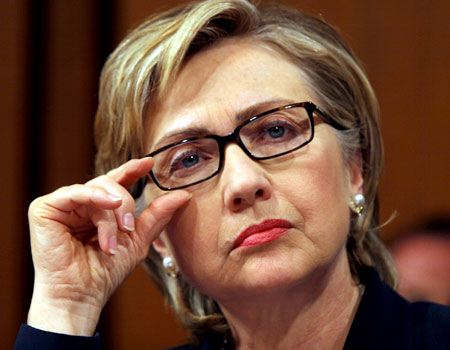
Washington, September 15: The anti-Islam film linked to violence against U.S. embassies in Libya, Egypt and Yemen continued to dominate headlines here even as Secretary of State Hillary Clinton sought to distance her government from it and the film's alleged director remained in hiding amidst a virtual media siege.
In a statement Ms. Clinton said, “Let me state very clearly, and I hope it is obvious, that the U.S. government had absolutely nothing to do with this video. We absolutely reject its content and message... This video is disgusting and reprehensible. It appears to have a deeply cynical purpose – to denigrate a great religion and to provoke rage.”
Meanwhile the man said to be behind the film, identified by some media as “Nakoula Basseley Nakoula,” and by others using a pseudonym of “Sam Bacile,” was holed up in a home in the Los Angeles quiet suburb of Cerros, in California.
Following initial speculation that Nakoula had received police protection Steve Whitmore, a spokesman for the LA county sheriff clarified that although police were closely watching the scene of the media throng in Cerros that did not imply that he was under police protection. “We're only here because the media is here,” Mr. Whitmore was quoted as saying.
Meanwhile Ms. Clinton identified two security detail officers killed during Tuesday's assault on the U.S. embassy in Beghazi, Libya, where U.S. Ambassador Chris Stevens and Information Management Officer Sean Smith also died. She said, “We also recognize the two security personnel who died helping protect their colleagues. Tyrone Woods and Glen Doherty were both decorated military veterans who served our country with honour and distinction.” Both men were former Navy SEALs.
The outbreak of violence against U.S. assets abroad was also a subject that President Barack Obama addressed in a statement to media. Commenting on the situation in Cairo he said to a television news channel, that the U.S. did not consider Egypt an ally, “but we don't consider them an enemy.” They were democratically elected, he added, suggesting that his government would be watching “how they respond to this incident, how they respond towards maintaining the peace treaty towards Israel.”
Mr. Obama's comments came as more details about the damage inflicted to U.S. embassy premises in Cairo, Sana and Benghazi surfaced. In particular the Independent quoted senior diplomatic sources saying the State Department “had credible information 48 hours before mobs charged the consulate in Benghazi, and the embassy in Cairo, that American missions may be targeted.”
It added that sensitive documents had gone missing from the consulate in Benghazi and the secret location of the “safe houses” across the country may have been compromised along with the names of Libyans working with the U.S., and documents relating to oil contracts.





Comments
Add new comment